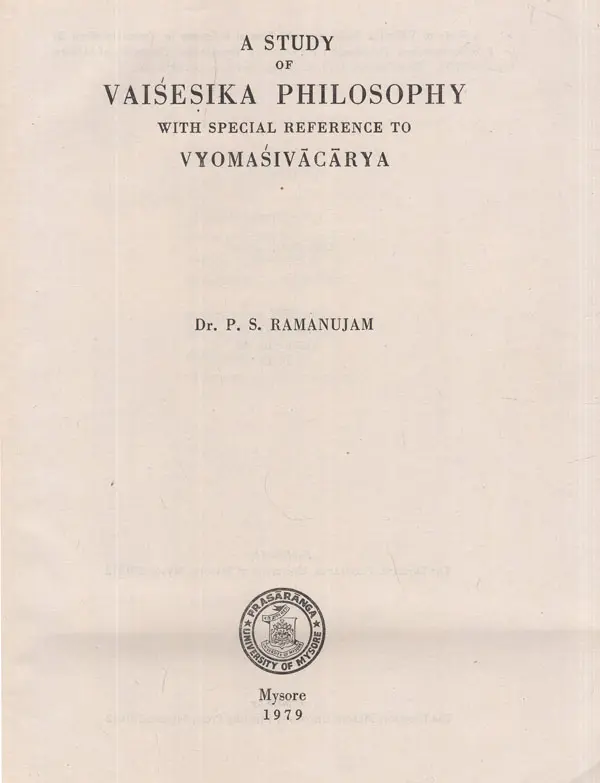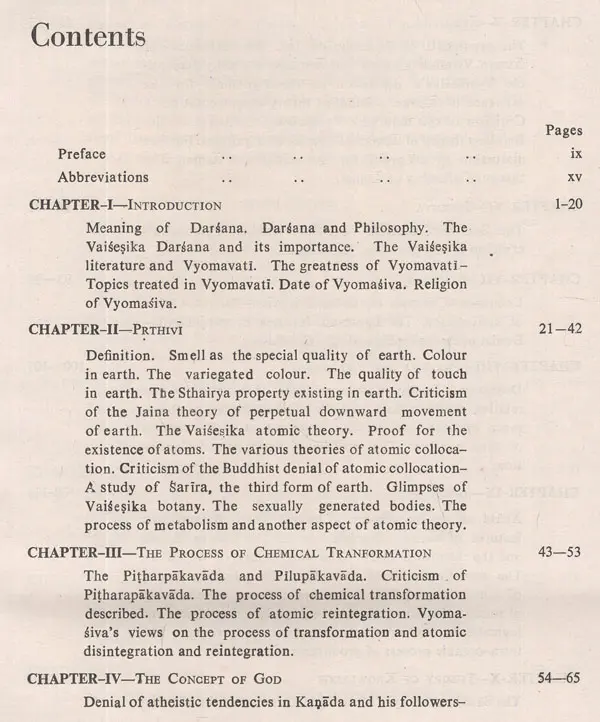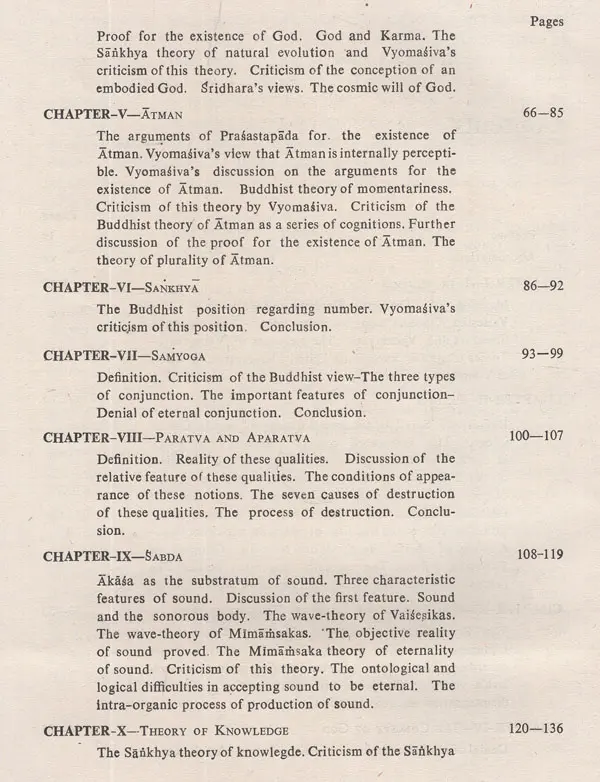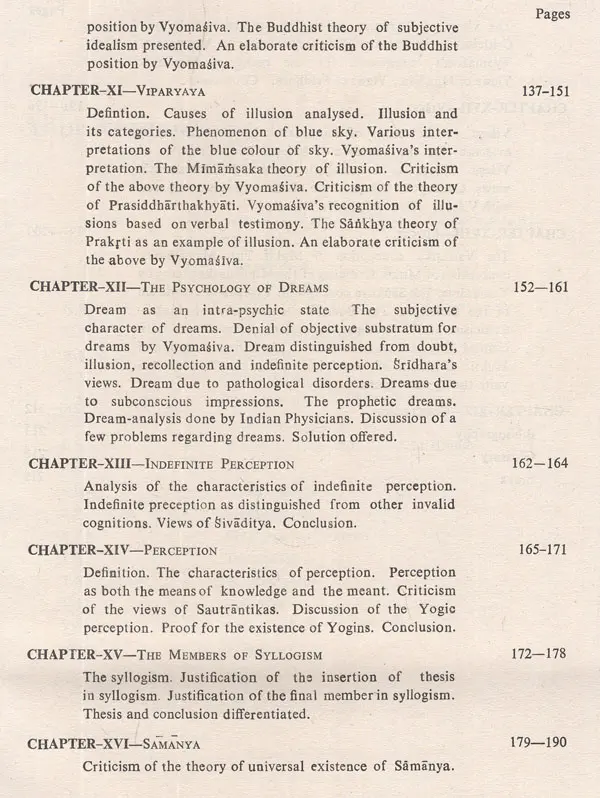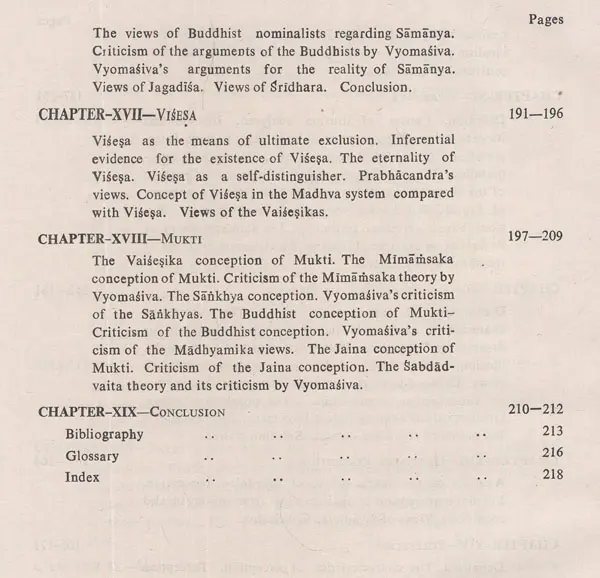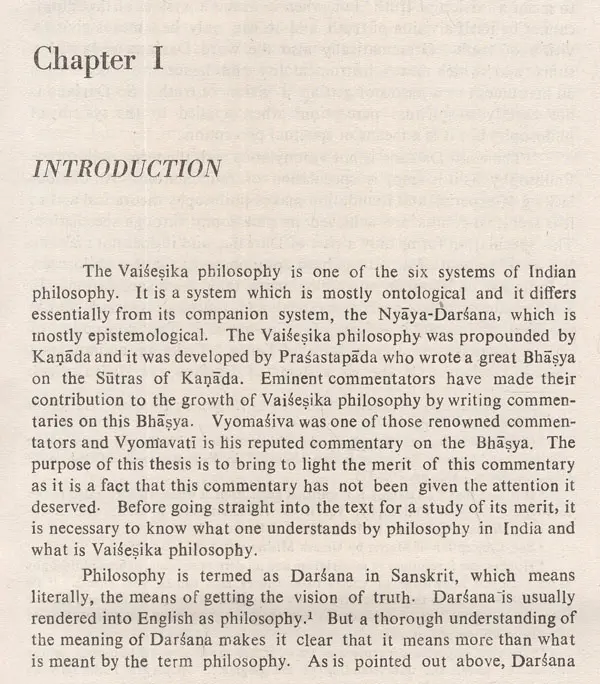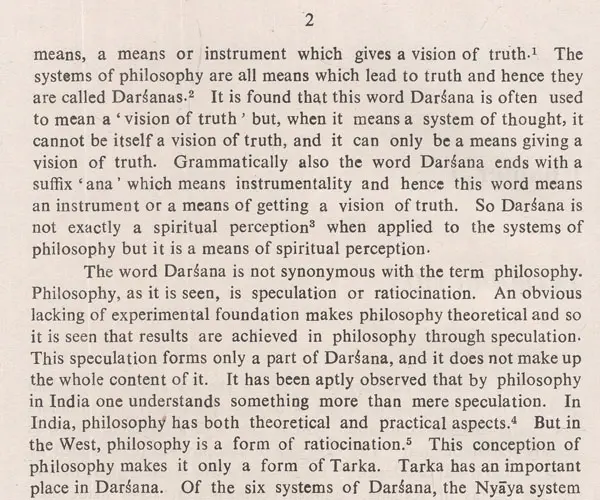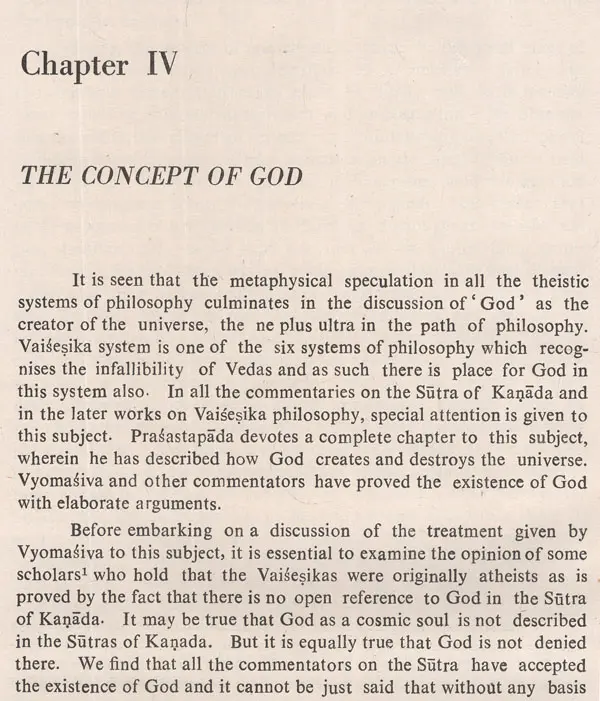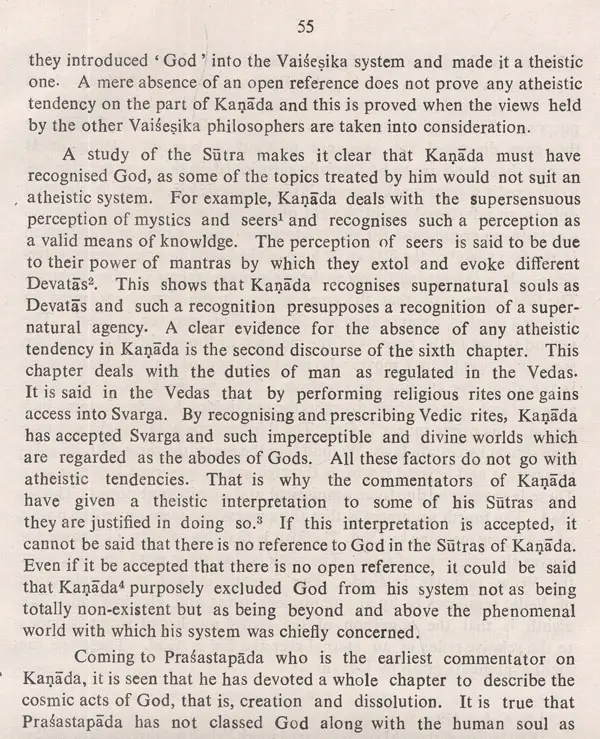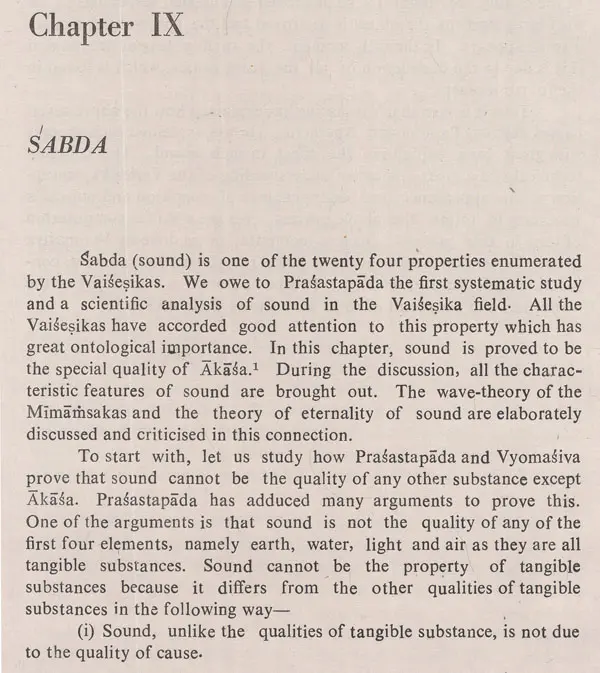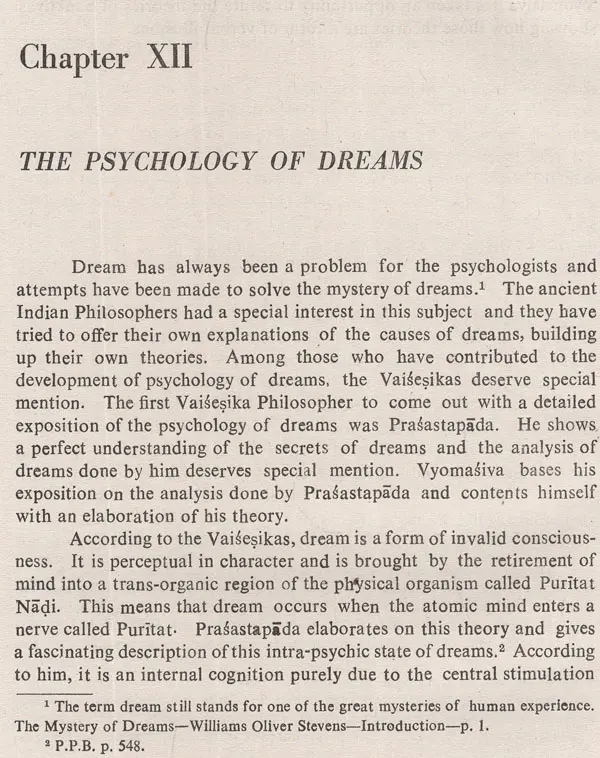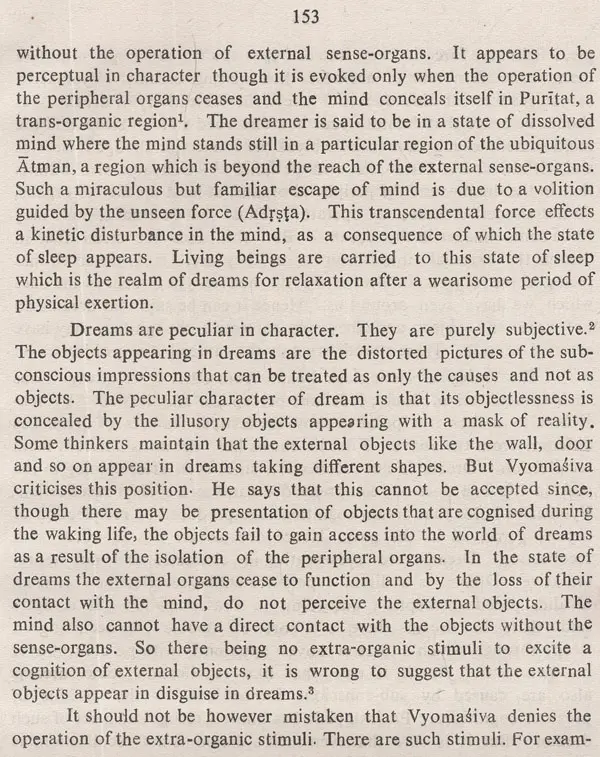
A Study of Vaisesika Philosophy- With Special Reference to Vyomasivacarya (An Old and Rare Book)
Book Specification
| Item Code: | UAL837 |
| Author: | P. S. Ramanujam |
| Publisher: | University of Mysore, Mysore |
| Language: | English |
| Edition: | 1979 |
| Pages: | 242 |
| Cover: | PAPERBACK |
| Other Details | 10.00 X 7.50 inch |
| Weight | 360 gm |
Book Description
The purpose of this thesis is to bring to light the contribution of Vyomasivacarya, the author of Vyomavati, to the development of the Vaisesika system of thought. Vyomavati is a great commentary written by Vyomasivacarya on the Bhasya of Prasastapada. This is a complete and comprehensive commentary and, as is proved in the thesis, it is the earliest commentary available on the work of Prasastapada. This commentary has not received the attention it deserves, though it has been classed among the four great commentaries on the Bhasya. the other three being. Nyayakandali of Sridhara, Kiranavali of Udayana and Lilavati of Srivatsa. So, in this thesis an attempt to bring out the merits of this commentary is made, picking out only the important chapters where the contribution of Vyomasiva can be clearly assessed. An analytical study of these chapters is made in this thesis and a clear presentation of the views of Vyomasiva on the various concepts of Vaisesikas has been attempted here. Of all the commentaries, Vyomavati of Vyomasiva has been selected for my study because it is not just a blind commentary closely following the original text, but it presents the original thought of Vyomasiva and so it stands singled out in this respect. A study of Vyomavati reveals that, Vyomasiva not being satisfied with merely being a commentator, boldly presents his own views, at times disagreeing with the views of Prasastapada. This speciality gives this commentary a special status.
In this thesis, I have selected for my study only a few important chapters which have been treated elaborately by Vyomasiva. In the arrangement of topics also, I have mostly followed Vyomasiva, except for the chapter on Mukti. This chapter appears in Vyomavati in the beginning itself, but in this thesis it has been treated at the end. In the selection of topics, attention has been paid not to the importance of the topics in the Vaisesika Philosophy but to the importance given by Vyomasiva to those topics. That is, certain topics have been given elaborate attention by Vyomsiva and in those topics he has given expression to his independent views also. So those topics where the originality of Vyomaasiva is revealed have been selected for discussion in this thesis. For this purpose, only a chapter-wise study has been done. The discussion of these chapters has not been an isolated study of the views of Vyomasiva but his views are compared with the views of others also.
In my present task of bringing the merits of Vyomavati to light, I have greatly depended on the original text of Vyomavati and the other original texts on Vaisesika Philosophy. The cryptic style of Vyomavati and its antiquity made the task difficult, but the persistent guidance given to me by my respected Professor of Sanskrit, Sri S. Ramacandra Rao, M.A., gave me the necessary inspiration to reach my goal and I owe my deep gratitude to him. I express my gratitude to my father, Asthana Vidwan Sri Sampathkumaracarya who gave me valuable help in interpreting the original text. Similarly I am grateful to my revered teachers, Sri Navinam Venkatesa Sastrigal and Sri Pathankar Candrasekhara Bhatta who gave me the necessary. instruction during the period of my study. I express my gratitude to the University Grants Commission for granting me a Junior Research Fellowship and I am deeply indebted to the University of Mysore for giving me an opportunity to do research in the Department of Sanskrit and also for awarding me the Ph.D. degree on this thesis. I express my gratitude to my teacher Sri B. K. Shivaramaiah, Reader in Sanskrit, Manasagangotri, Mysore for his continuous help in seeing the work through the Press. I do not find adequate words to express my gratitude to Dr. Prabhushankara, Director, Prasaranga, for the interest he took in bringing this thesis to light. My sincere thanks are due to Sri H. Narasanna, Director, University Printing Press and his staff for the excellent work they have done in printing this thesis.
**Contents and Sample Pages**
